
Exciting new series on “Voice, Body and Movement for Lawyers – How to connect with the jury and find Justice Through Dramatic Technique!”
Click here to find out more
Attorneys hopefully recognize that, like many other professionals, their lives are filled to the brim with stress. It’s important to be proactive in dealing with it. The consequences of shrugging it off can be catastrophic - not only for them but for their family, staff and friends.
And then there’s trauma. The ramifications of trauma aren’t discussed as frequently as those of stress and thus, for many attorneys, trauma is a topic in need of attention. Trauma can be secondary or vicarious. For example, it can be the cumulative effect of listening to a client or witness relay graphic stories and experiences, viewing gruesome photos in a personal injury, criminal or family law matter or hearing traumatic testimony at trial. Trauma also results from a personal loss such as the death of a family member or a close friend. It’s important to recognize the signs of trauma in yourself as well as in your clients, office staff and families.
Hear from our experienced speaker as he shares his personal story of trauma and learn how you can recognize the unhealthy and potentially life threatening shadow it can cast.
Recent studies have shown that there has been a dramatic increase in impairment due to alcoholism, addiction and mental health disorders among members of the legal profession. The statistics are compelling and clearly indicate that 1 out of 3 attorneys will likely have a need for substance use or mental health services at some point in their careers.
Mr. Quinn will discuss:
1. The early warning signs of impairment, with special emphasis on secondary or vicarious trauma.
2. The free services that Lawyers Assistance Programs provide to lawyers, judges, their family members and law students.
3. A close look at what barriers exist that prevent lawyers from seeking the help they need will be provided.
4. The role that education plays in breaking the stigma and fear associated with addiction and mental illness in the legal profession.
5. How best to approach the impaired individual.
6. Ethical considerations regarding the duty to report an impaired attorney and the exceptions granted to Lawyer and Judicial assistance programs.
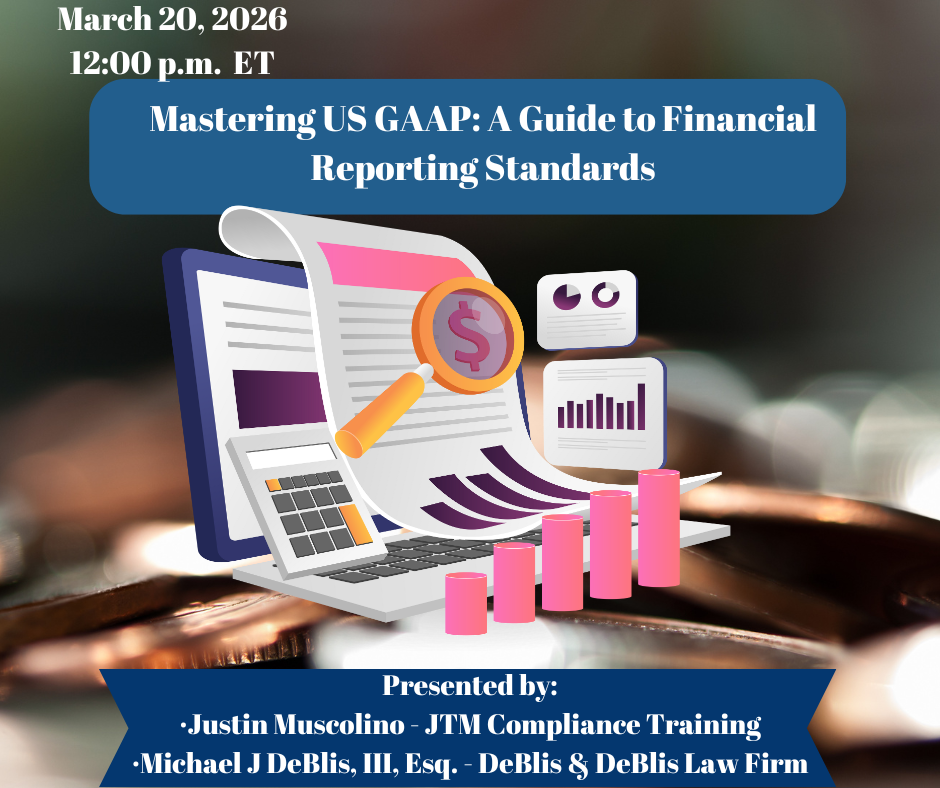
This advanced CLE dives into complex GAAP topics relevant to attorneys advising corporate, regulator...
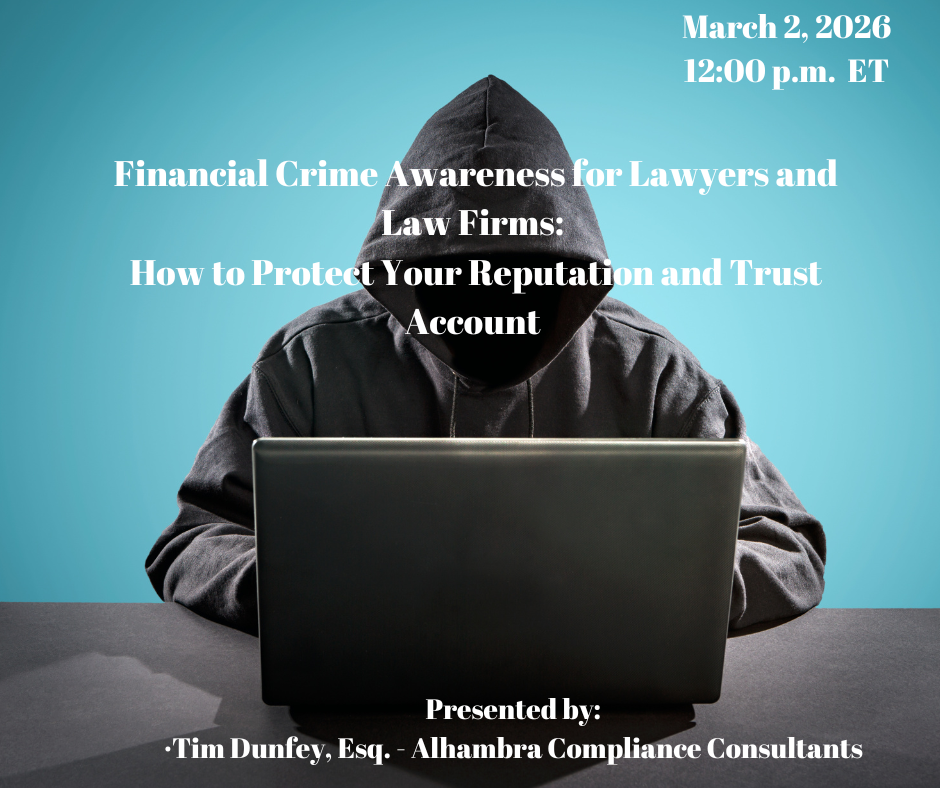
Attorneys and law firms are well known vectors for money laundering risk. Banks regularly labe...
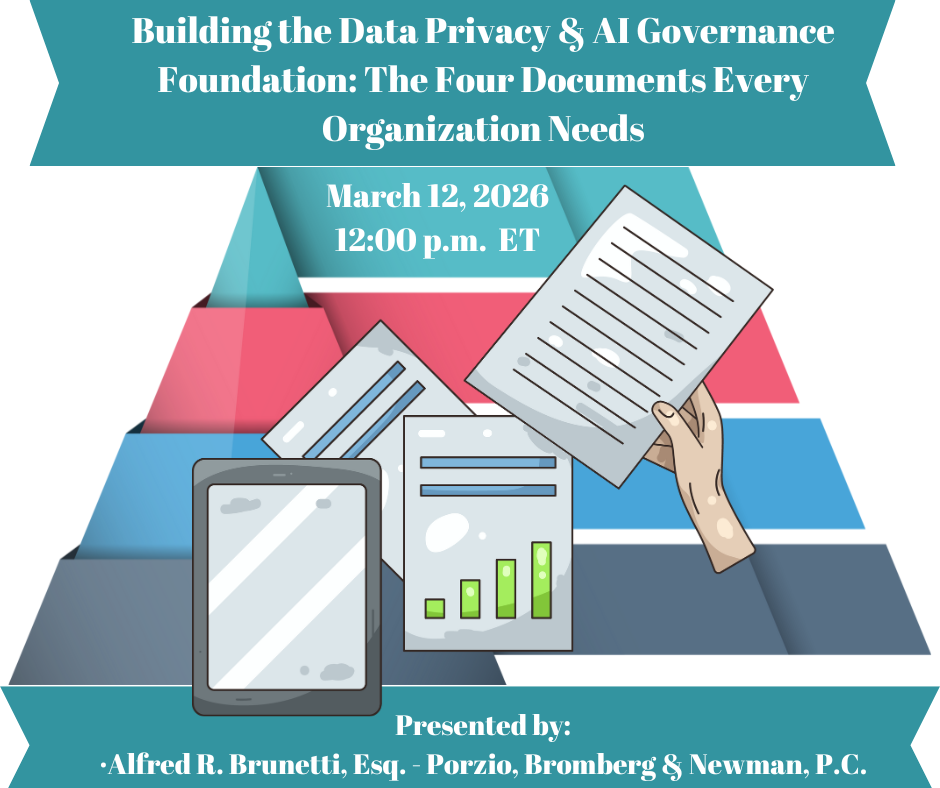
Effective data privacy and artificial intelligence governance programs do not happen by accident. Th...
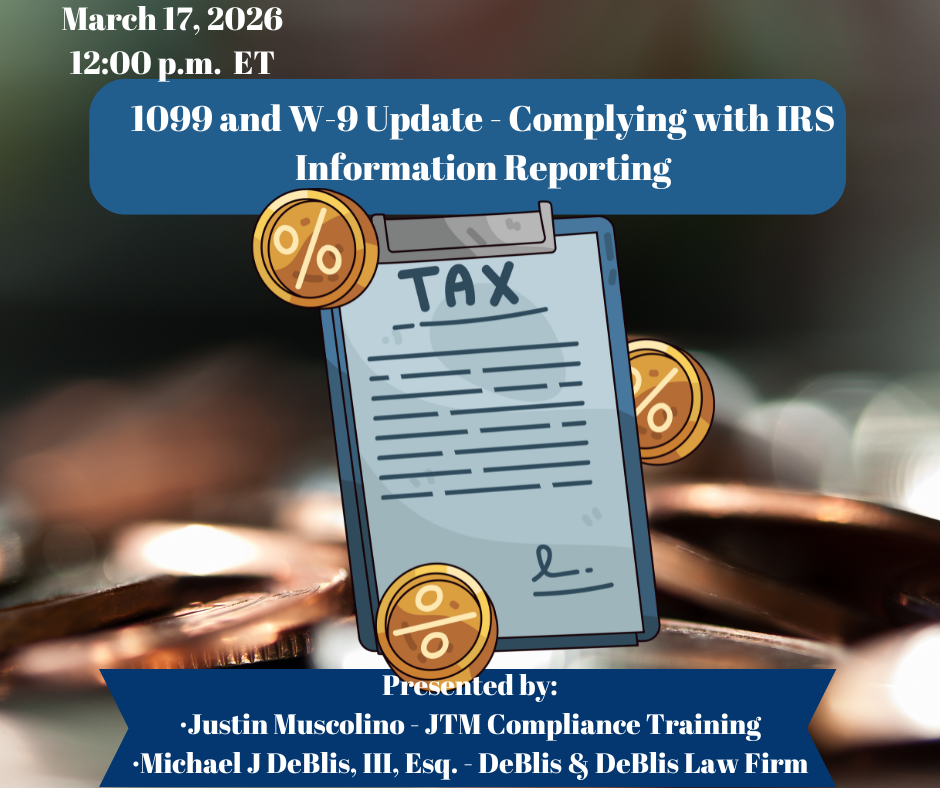
This CLE program covers the most recent changes affecting IRS information reporting, with emphasis o...

Part II builds on the foundation established in Part I by examining how classical rhetorical styles ...
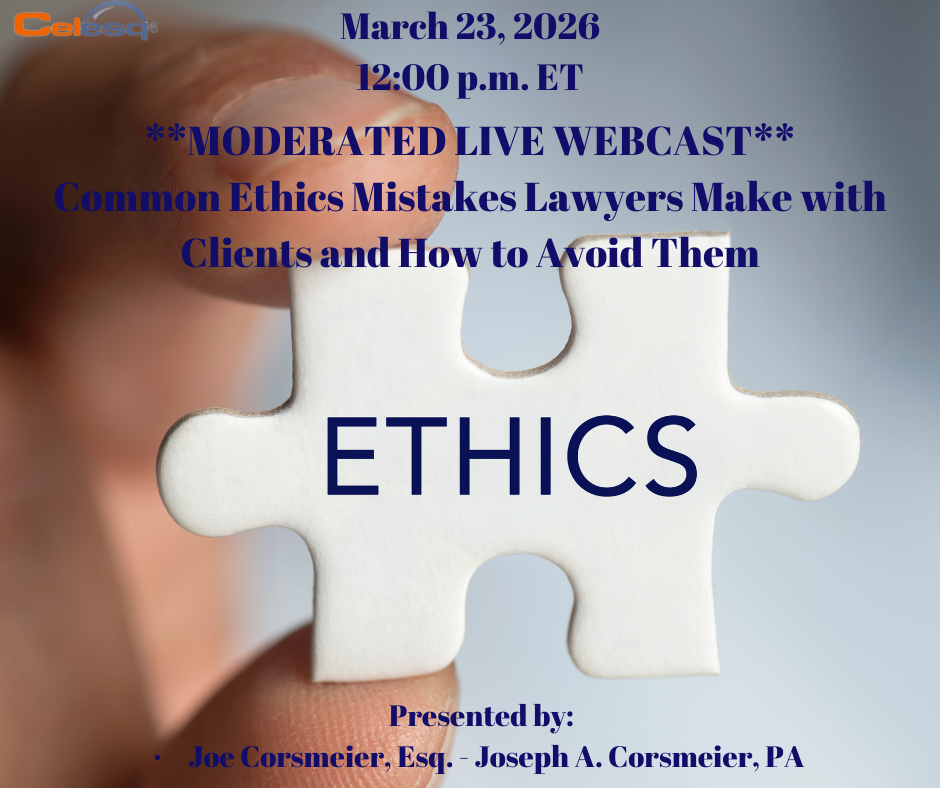
Many lawyers may not fully understand the Bar rules and ethical considerations regarding client repr...
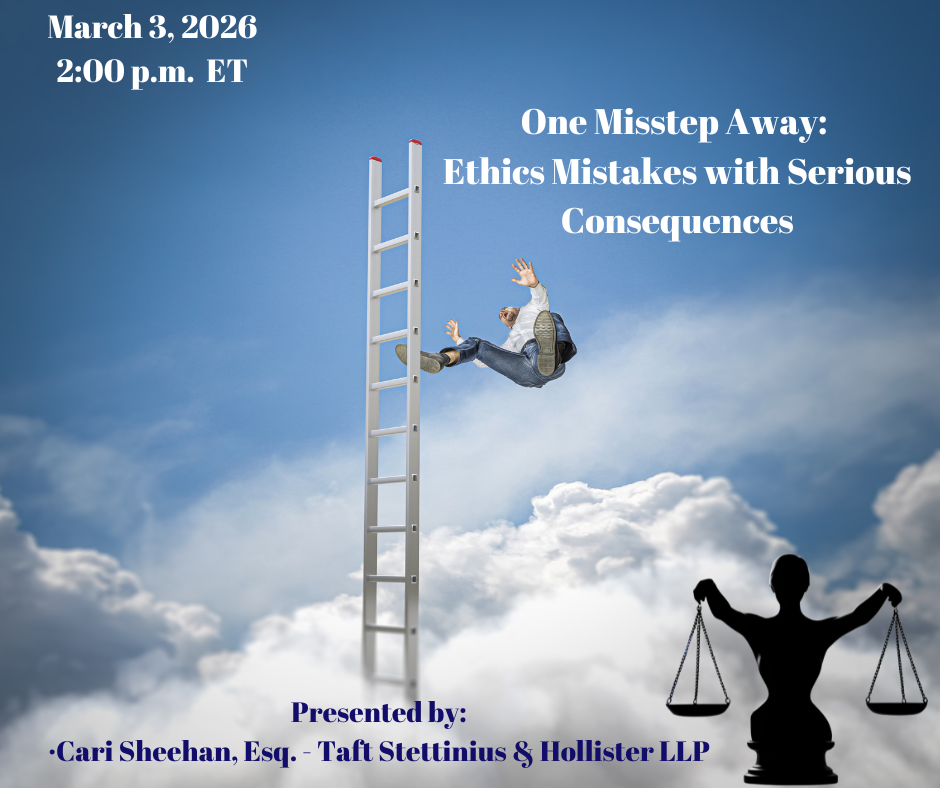
This ethics program examines common, but often avoidable, professional responsibility mistakes that ...
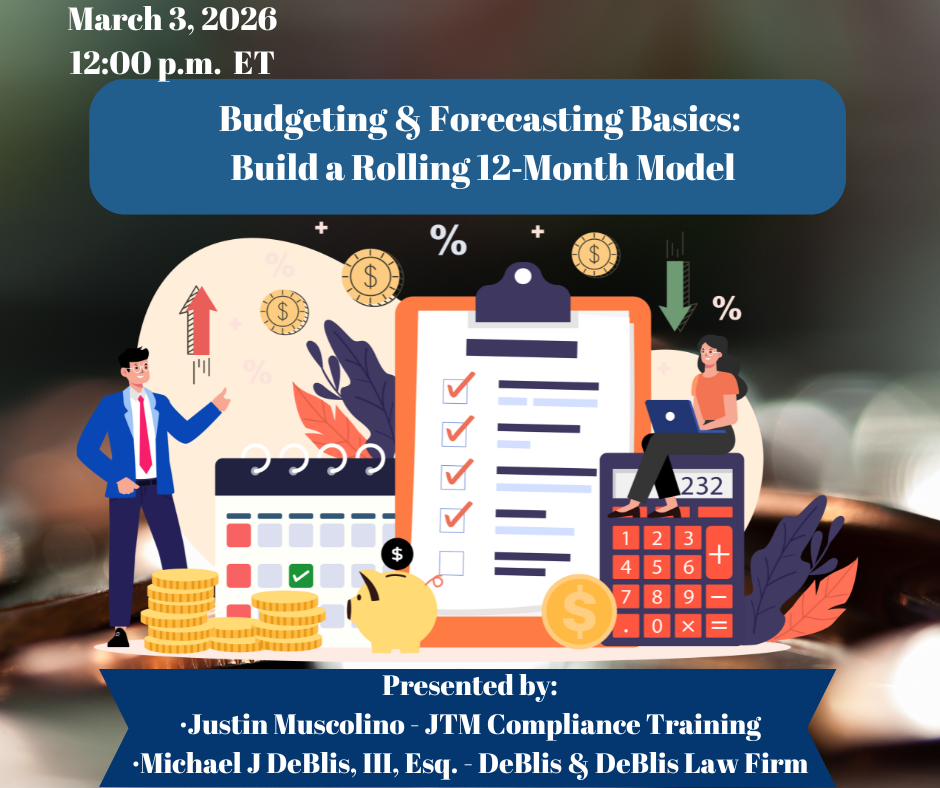
This CLE session introduces attorneys to budgeting and forecasting concepts used in corporate planni...
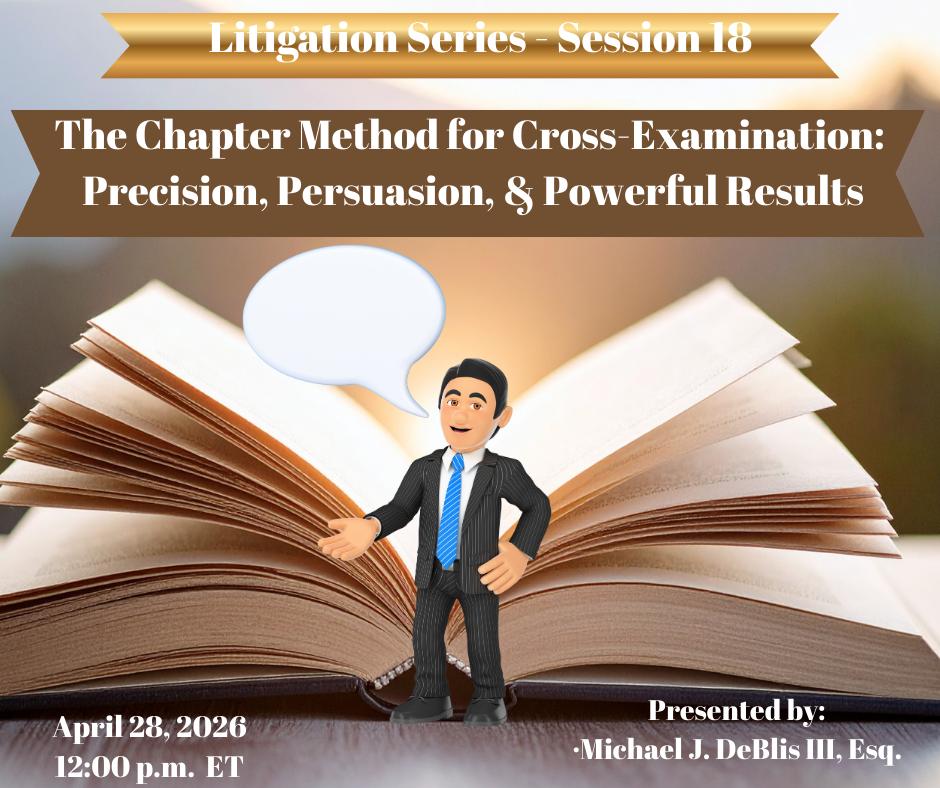
The “Chaptering Your Cross” program explains how dividing a cross?examination into clear...
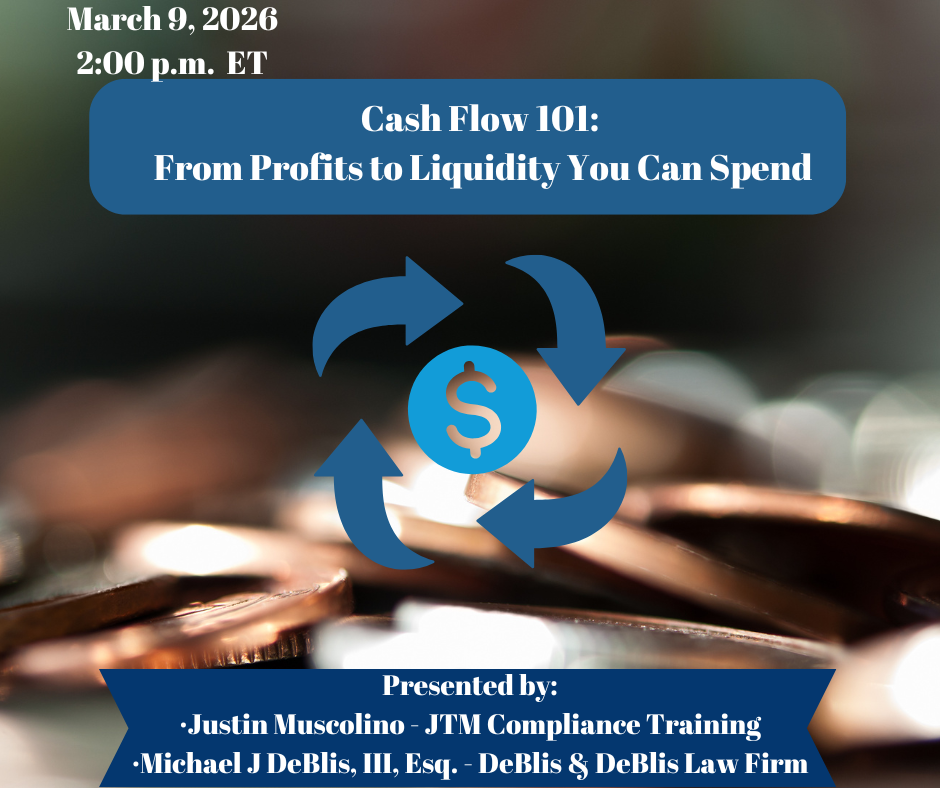
This course clarifies the distinction between profit and cash flow from a legal perspective. Attorne...